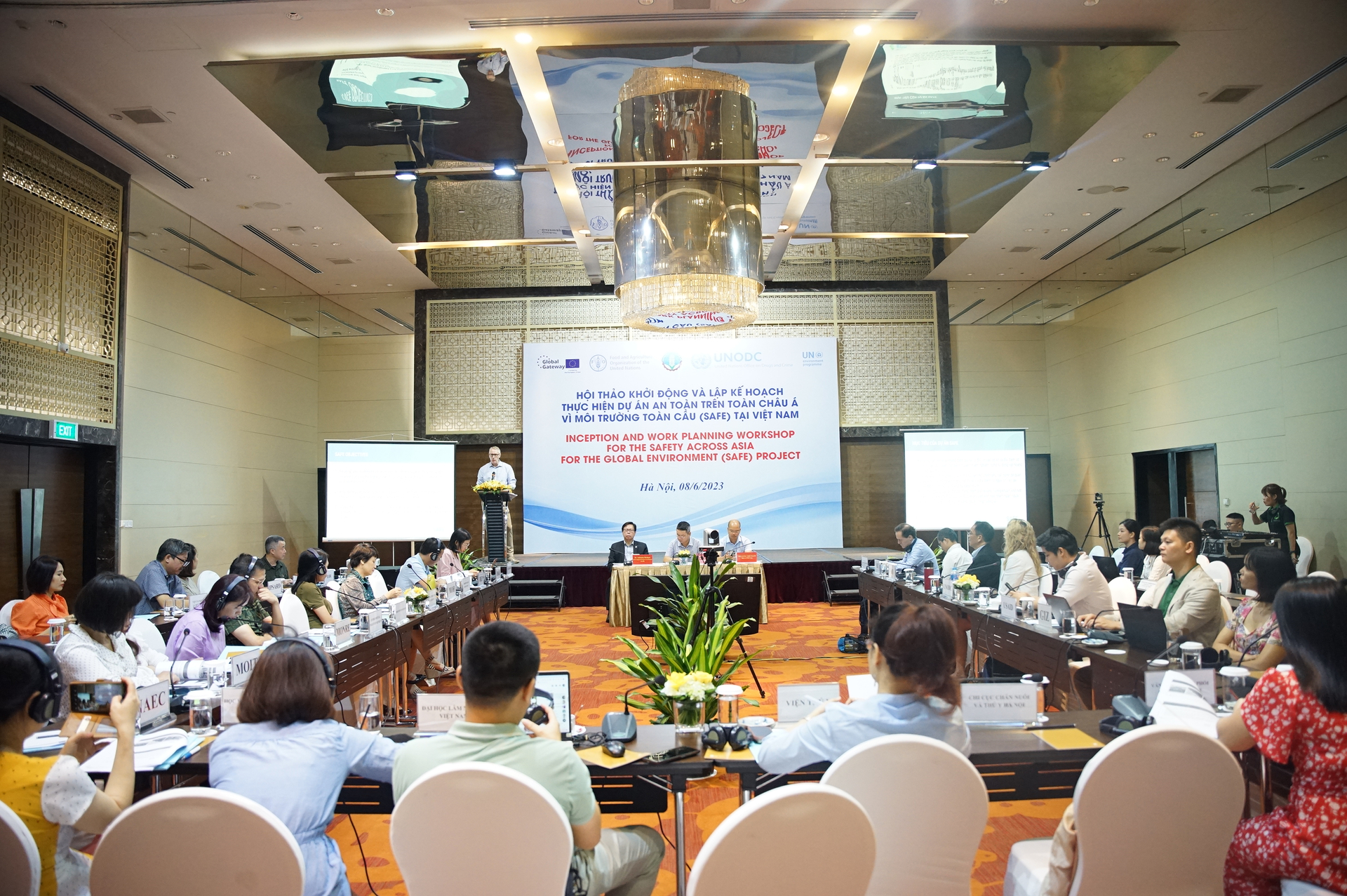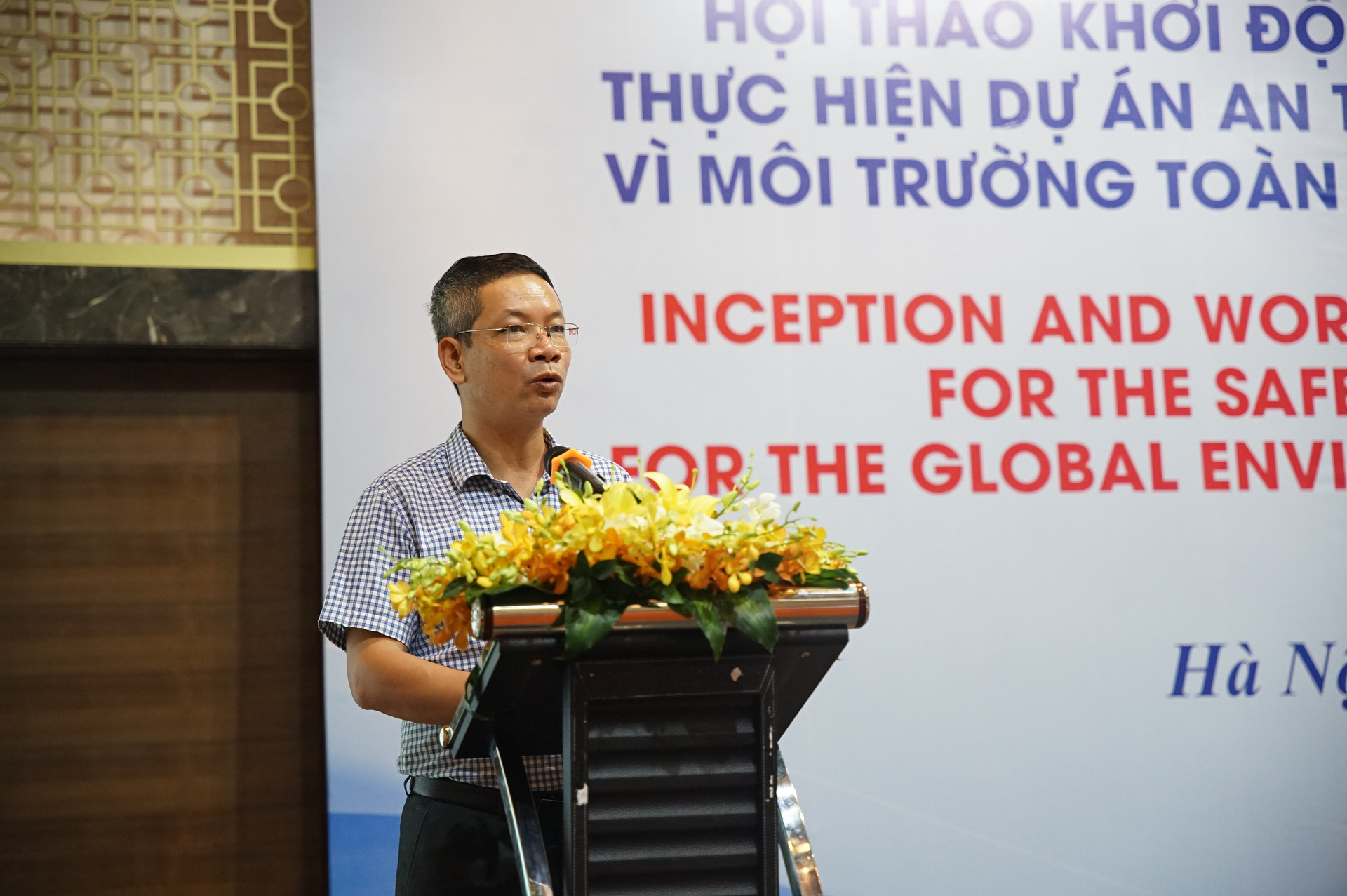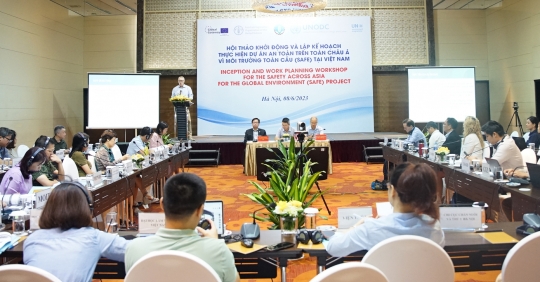
The SAFE project was designed with the express aim of reducing the risks of future pandemics by focusing on the health and crime risks associated with wildlife facilities. Picture: Linh Linh.
In recent years, the world has been at risk of the emergence and spread of emerging or re-emerging infectious diseases in humans, domestic animals and wildlife. These diseases arise from human-animal-ecosystem interactions and can have serious consequences for human health, livelihoods, economic development, and more.
The World Health Organization has scientific evidence that approximately 70% of emerging dangerous infectious diseases in humans are of animal origin.
The Covid-19 pandemic has caused people to pay more attention to diseases transmitted from wildlife to animals and humans, the risks of eating bushmeat and global health security. On the other hand, wildlife trade is becoming a livelihood for people in many Southeast Asian countries.
Mr Vu Thanh Liem, Deputy Director-General of the Department for International Cooperation (MARD), said the SAFE project is funded by the EU and chaired by the United Nations Office on Drugs and Crime (UNODC) with co-implementation partners including the United Nations Environment Program (UNEP) and the Food and Agriculture Organization of the United Nations (FAO).

Mr. Vu Thanh Liem, Deputy Director of the International Cooperation Department (MARD), spoke at the workshop. Picture: Linh Linh.
The government partner is the Ministry of Agriculture and Rural Development through the Administration of the Convention on International Trade in Endangered Species of Wild Fauna and Flora (CITES) as promoter and the Ministry of International Cooperation/Culture. A health coordination office is the coordinating body to mobilize intersectoral coordination.
Mr. Vuong Tien Manh, Deputy Director of CITES, concluded that the project aligns very well with Vietnam’s wildlife conservation priorities and policies in line with the Prime Minister’s Guideline No. 29/CT-TTg on a Set of Urgent Solutions for Wildlife Management .
“The project takes a one-health approach, mobilizing intersectoral and intergovernmental agencies to control and prevent domestic and cross-border wildlife trade. “The project calls on relevant government agencies to participate in reviewing domestic and transboundary wildlife management policies and mechanisms,” Manh said.
The CITES representative also shared that the project task of combating wildlife diseases is also one of the six main tasks of the One Health Partnership Framework.
“Over the years, the Vietnamese government has strengthened surveillance systems, promoted responsible wildlife trade practices while protecting livelihoods, improved biosecurity on farms and markets, and raised awareness of zoonotic diseases.” “This project will help strengthen our work and help us to improve the management of captive wild animals according to the draft national plan,” Manh said.
As part of the One Health approach, efforts are also being made to strengthen cooperation between the public health, veterinary and environmental sectors.
Jenna Dawson-Faber, UNODC SAFE project coordinator, said: “The SAFE project was designed with the express aim of reducing the risks of future pandemics by focusing on health risks and crime associated with wildlife facilities. To achieve this goal, it is necessary to act together and involve stakeholders,” said Ms. Jenna.
The SAFE project was presented by FAO Vietnam at the MSK Summit in August 2022 and detailed at the Pandemic Working Group (PWG) meeting in January 2023.
The aim of the project is to contribute to the fight against illegal wildlife trade and wildlife diseases. Apply good practices along the value chain and manufacture animal products; Contributes to strengthening the coordination capacity between government actors (Department of Health, Department of Natural Resources and Environment, Department of Industry and Trade…) and public and private sector stakeholders involved in the chain of wildlife values and private sector involvement in disease control are pursuing a One Health approach and thus strengthening and expanding regional and international cooperation in One Health Strong.

